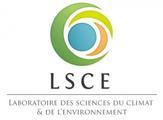You are here: Ecoprophet » Who we are
Who we are
Research Centre of Excellence Plants and Ecosystems (PLECO)
University of Antwerp

PLECO’s mission statement is: to improve our fundamental understanding of the impact of global changes on plants and ecosystems at different hierarchical levels of organization so that we can simulate and predict their responses under future conditions.
We want:
- to conduct research that is of high relevance and in an international setting;
- to create a positive and constructive atmosphere to motivate our students and colleague researchers;
- to train group members to become independent, critical, yet productive scientists that are competitive when they leave our research group.
The research group of Plants and Ecosystems, Ecology in a time of change (PLECO) was created in 1975 by Prof. Ivan Impens. Since 2000 Prof. Reinhart Ceulemans is leading the research group, that has grown from 13 full-time persons in 1990 to more than 50 full-time persons at present.
PLECO has four permanent professors who each specialize in different topics, but nonetheless collaborate actively in others.
The overarching theme of the research group is the study of the effects of global changes – in the broadest meaning of the term – on plants and vegetations. We realize this overall aim a.o. by studying responses of plants and vegetations to the (sometimes manipulated) abiotic environment over a continuum of different spatial scales (ranging from the individual leaf to the continent). As much as possible, original experimental research is strengthened by coupling to existing or newly developed simulation models or to statistical meta-analysis of the related literature. PLECO research currently spans the entire gradients of climate and management intensity, including projects in tundra, deserts, temperate grasslands, temperate and tropical forests, but also in intensively managed agricultural crops and SRC plantations.
The group has an extensive and long-standing experience with the study of a wide range of sub-disciplines in the domain of ecology – in particular the ecology of plants and vegetations – and in the domain of biogeochemistry, in particular the cycling of carbon and its interactions with water and nitrogen
Royal Meteorological Institute of Belgium

The Royal Meteorological Institute of Belgium (RMI) is a scientific institute providing a large diversity of services and in the field of meteorology. The RMI is also a research institute in the fields of hydro-meteorology, climatology and geophysics based on validated observations collected through networks. Implementation of multidisciplinary tools and methods in order to tackle problems of current concern. Training of young researchers for individual development and innovative activities.
Center for Research on Ecology and Forestry Applications (CREAF)

CREAF is a public research center dedicated to terrestrial ecology and territorial analysis, producing knowledge and methodologies for conservation, management, and adaptation of the environment to global change.
The center’s objective is to work as a bridge between academia, administrations, and society, promoting awareness and exchanging knowledge within its scope of activities, at the local, regional, and global levels.
Located at the campus of the Universitat Autònoma de Barcelona, the center was founded in 1987 as a consortium between various public administrations, research entities, and academic training entities. Research carried out by the center can be divided into four general areas:
- Biodiversity
- Functional ecology and global change
- Forest ecology and wildfire
- Environmental analysis and GIS
Laboratoire des Sciences du Climat et de l'Environnement

LSCE is a large laboratory that pulls together personnels from CEA, CNRS and the Versailles-St-Quentin University. It is located on the campuses of both the CEA-Orme des Merisiers and CNRS-Gif sur Yvette. It is part of the Institut Pierre Simon Laplace that optimizes the work of several laboratories in the Paris area working in similar themes. There are about 300 people working at LSCE, 150 of which hold permanent positions and several tens are working on a PhD.
Since January 2015, LSCE is organized around 3 main scientific themes that regroup 4 to 7 teams working on similar subjects or with the same tools:
- Archives and tracers
- Biogeochemical cycles and transfers in the environment
- Climate and cycles. Modeling the variability and their interactions
The LSCE scientific activity is made possible thanks to the work of the support teams (Administration, Computing, security/infrastructures)
College of Urban and Environmental Sciences (CUES) - Peking University

The College of Urban and Environmental Sciences (CUES) started from the establishment of the Department of Geology and Geography in 1952, which combined the faculty from the Department of Geoscience at Tsinghua University and the Department of History at Yanking University. In 1978, the Department of Geography was created out of the Department of Geology and Geography, and was renamed the Department of Urban and Environmental Sciences in 1989. CUES was founded on the department of Urban and Environmental Sciences in 2002.
CUES is under the administration of the Faculty of Natural Sciences. Currently, CUES has five departments ,including the Department of Environmental Science, Department of Ecology, Department of Resource and Environmental Geography, Department of Urban and Economic Geography, and Department of Urban and Regional Planning, and two centers , including the Center for Historical Geography and the Center for Architecture.
CUES has 70 full-time faculty members including 37 full professors, 22 associate professors, 7 assistant professors, and eight research professors. The full professors, research professors, and associate professors serve as the graduate faculty. Professors in the college are educated or trained by China’s top academic institutions and world-renowned universities in the United States, United Kingdom, Canada, Japan, France, Germany and Hong Kong. Faculty in the college specialize in a wide range of areas and cover a variety of disciplines, including Environmental science, Ecology, Geomorphology, Physical Geography, Quaternary Geology, Human Geography, Urban Planning, Urban Design and Architecture.
Among the faculty members, two are members of the Chinese Academy of Sciences and nine are Cheung Kong Scholars. Two research groups (Environmental Geochemistry and Ecology) have been granted by the NSFC Innovative Research Group Fund and twelve professors have been granted the NSFC National Natural Science Fund for Distinguished Young Scholars.Among the faculty members, 19 professors are serving on the advisory/editorial boards of international peer-reviewed journals.
CUES faculty members have earned a number of honors and awards, including National Award of National Science, National Excellent Teacher Award, Young Female Scientist Award, Chang Jiang Scholars Achievement Award, National Outstanding Planning and Design Award, and The UNESCO Asia-Pacific Heritage Awards for Culture Heritage Conservation etc.
CUES offers five undergraduate degree programs including Environmental Science, Ecological Science, Physical Geography, Human Geography, and Urban and Regional Planning. CUES offers eight MS degree programs, including Physical Geography, Human Geography, Historical Geography, Geomorphology, Quaternary Geology, Environmental Science, Urban and Regional Planning, and Ecology, and six Ph.D. programs, including Physical Geography, Human Geography, Historical Geography, Geomorphology, Environmental Geography, and Quaternary Geology. Interdisciplinary studies are strongly encouraged.
The college has a large number of high quality students recruited throughout the country. There are 400 undergraduate students, 200 master students and 200 doctoral students. The College welcomes about 100 new undergraduate students and 90 new graduate students each year. From their second year of college, undergraduate students are free to choose a major from the following concentration areas: Environmental Science, Ecology, Physical Geography, Urban Planning and Human Geography. Graduate students choose degree concentration upon recruitment.
CUES also welcomes Post-doctoral research associates to work with professors for two or three years in chosen areas. The college has frequently sent students to study abroad for a certain period of time under the financial support of the Ministry of Education. A large share of graduates from the College enter some world-renowned universities to pursue advanced degrees.
